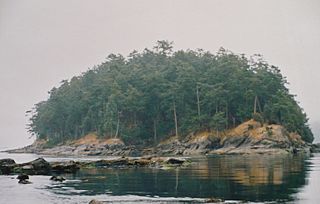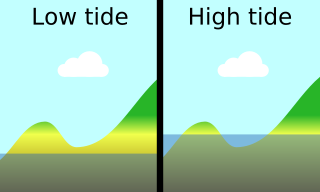The North Island is the northern island of mainland New Zealand.
Contents
North Island may also refer to:
The North Island is the northern island of mainland New Zealand.
North Island may also refer to:
Vancouver is the most populous city in British Columbia, Canada.
Wellington is the capital city of New Zealand.
Richmond most often refers to:
Kings or King's may refer to:
Chatham may refer to:
Nelson may refer to:

Gulf Islands National Park Reserve is a national park located on and around the Gulf Islands in British Columbia, Canada. In the National Parks System Plan, this park provides representation of the Strait of Georgia Lowlands natural region, the only place in Canada with a Mediterranean climate of dry, sunny summers and mild, wet winters, the result of a rain shadow effect from surrounding mountains between the region and the ocean. It has similar dominant vegetation as the Pacific Northwest, such as coastal Douglas-fir, western red cedar, shore pine, Pacific dogwood, bigleaf maple, and red alder, but also contains the northern extent of some of the more drought tolerant trees such as Garry oak and Arbutus. The park was created in 2003 as the fortieth national park. It covers 36 square kilometres (14 sq mi) of area on 16 islands and more than 30 islets, reefs and surrounding waters, making it the sixth smallest national park in Canada.

The Gulf Islands is a group of islands in the Salish Sea between Vancouver Island and the mainland coast of British Columbia.
Long Island is a densely populated island in the southeastern geographical area of the State of New York.

A tidal island is a raised area of land within a waterbody, which is connected to the larger mainland by a natural isthmus or man-made causeway that is exposed at low tide and submerged at high tide, causing the land to switch between being a promontory/peninsula and an island depending on tidal conditions.
Mackenzie, Mckenzie, MacKenzie, or McKenzie may refer to:
Parkland often refers to a park.
Melville may refer to:
Muttonbird or mutton bird may refer to species of petrel, especially shearwaters, whose young are harvested for food and other uses before they fledge in Australia and New Zealand. The English term "muttonbird" originally emerged among settlers on Norfolk Island as the strong taste and fattiness of these birds' meat was likened to mutton. The Māori name for the birds, tītī, is also widely used in New Zealand.
Bligh may refer to:
The Tītī / Muttonbird Islands are an island group near Stewart Island in the far south of New Zealand. The islands are not permanently inhabited, and are named for the traditional seasonal harvesting ("muttonbirding") of the sooty shearwater by Māori. These birds are known as "muttonbirds" due to their supposedly mutton-like taste.

Muttonbirding is the seasonal harvesting of the chicks of petrels, especially shearwater species, for food, oil and feathers by recreational or commercial hunters. Such hunting of petrels and other seabirds has occurred in various locations since prehistoric times, and there is evidence that many island populations have become extinct as a result. More recently ‘muttonbirding’ usually refers to the regulated and sustainable harvesting of shearwaters in Australia and New Zealand. These include the short-tailed shearwater, also known as the yolla or Australian muttonbird, in Bass Strait, Tasmania, as well as the sooty shearwater, also known as the tītī or New Zealand muttonbird, on several small islands known as the Muttonbird Islands, scattered around Stewart Island in the far south of New Zealand.
Edwards Island or Edwards Islands may refer to:
Juan de Fuca was a Greek maritime explorer.
Victoria most often refers to: